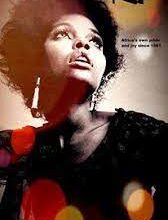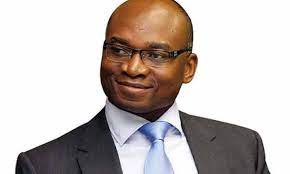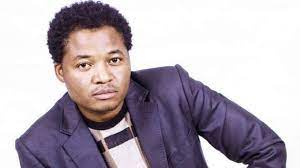Sunday “Mhofu” Chidzambwa – The Rural Boy Who Defied All Odds
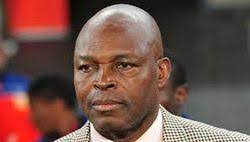
Sunday “Mhofu” Chidzambwa
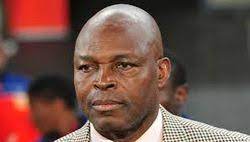
By Kamangeni Phiri
IN the world of soccer, it is rare for a defensive player to command as much fame and respect as that of an attacker.
Attacking players, both strikers and midfielders, are often remembered for their goal-scoring prowess and artistry; while defenders are ‘detested’ for their crudeness in executing their primary role of thwarting those attacks to prevent opposition players from scoring.
But one defender, Sunday ‘Mhofu’ Chidzambwa, a centre-back, defied all odds and asserted himself as arguably the overall best footballer to emerge out of Zimbabwe.
Not many defensive players could play with such poise and grace like a peak Chidzambwa.
His journey as a soccer player started in Chivi, rural Zimbabwe where he used to kick around a ‘monkey orange’ (mutamba) wild fruit while herding cattle.
“I used to help my mother herd cattle when I was a little boy. My brother Misheck would be strapped on mother’s back. As villagers we would take turns to herd cattle on each other’s behalf. So when it was our turn, I would accompany my mother. While herding cattle everything and anything cylindrical was a soccer ball to me. I often used matamba as my ball. It started just like that,” Chidzambwa told online TV Zim Soccernet host, Alouis Bunjira in his programme, In Touch With a Legend.
Sunday later roped in young brother, Misheck, in his play games. The two were later to perfect their skills using a lawn tennis ball which their father, a police officer based in Bulawayo, had brought for them.
“This is when I realised that the game of soccer is quite entertaining. I can say this is how I started playing soccer,” he said.
It was the brothers’ rudimentary introduction to soccer in the late 1950s that set the tone to their becoming stars in post-independent Zimbabwe.
There were no soccer academies back then and the few soccer clubs in existence were still to develop junior soccer structures.
Chidzambwa’s status as a giant of local soccer is unquestionable. Fans fondly call him “Mhofu” and his achievements with the national team earned him the title “Mr COSAFA”, after his record-breaking achievements in the Southern African competition.
Zimbabwe has won six COSAFA Cup titles, four of them with Chidzambwa as coach. He won the cup in 2003, 2009, 2017 and 2018. The history-making gaffer became the first coach to lead Zimbabwe to the Africa Cup of Nations finals hosted by Tunisia in 2004. He repeated the feat in 2019 when he took the team to the same tournament’s finals in Egypt. Sunday also had some coaching stints at club level in South Africa.
But his biggest moment in soccer will probably be a toss between his favourite Dynamos going all the way to the Club Champions league finals in 1997 and his taking the national team to their maiden AFCON tournament in Tunisia.
The elegant defender was the first captain of independent Zimbabwe’s senior national soccer team in 1980.
Chidzambwa experienced everything from scandals to winning league championships. The gaffer was slapped with a life ban in all soccer related issues in 2012 together with 14 others following his involvement in a match-fixing scandal that became known as the Asiagate. The ban was later lifted, in 2016, however, following a change of administration at ZIFA.
As a player Sunday won six league championships, five of them with Dynamos between 1977 and 1983. His first winners’ medal came way back in 1973 when he was with his first club, Metal Box.
Sunday Marimo Chidzambwa was born on 4 May 1952, in Chivhu, Mukore Village, Chikomba District in Mashonaland East. He is the third born in a family of six that also featured the late gaffer, Misheck, another soccer legend.
Chidzambwa enrolled at the local Zinatsa Primary School for his Sub A. He together with Misheck later moved to Harare where their father was stationed at Braeside Police Station. They started playing street soccer with other kids.
Chidzambwa was drafted into the school team when he was doing standard three. He then moved to Tomlison Depot School for his standard four where he again made it into the school team.
A year later, Chidzambwa was again on the move. He transferred to Bulawayo for his standard five and six where he was staying with his uncle. The veteran gaffer attended Mafakela Government School in Luveve and was immediately drafted into the school first team.
“Those days I was playing as a striker, position nine. I was a speed merchant and I was “Mr Goals”. I would outpace everyone and score goals for fun,” he said.
After completing standard six the nomadic Chidzambwa returned to Harare. He then went to Mbare at Harare Community School for his form one and two. In Mbare, Chidzambwa reinvented himself as a defensive midfielder.
He transferred to Highfield Community School for his ‘O’ level where he met Paul Mushandirwi, a classmate and soccer player who turned out for Metal Box. Mushandirwi invited Sunday to come and train at his club.
Metal Box was in the equivalent of what is Division One today.
Sunday, who was aged 19 then, impressed the coaches while playing D-link.
“That was in 1971 when I joined them and we gained promotion into the Super League in 1972. We were now coached by Allan Davey, the owner of Insport. He is the coach who switched me to CB after assigning me to mark just one player in one match, a deadly number nine from an opposing team. I marked the player out of the game and the coach was so impressed that he made CB my permanent position,” Chidzambwa said in a recent interview.
The following year, in 1973, Metal Box won the North Zone league title. The Super league was divided into two then, North Zone and South Zone.
Metal Box had stars who included July Sharara, Peter Zimuto and Oliver “The Flying Saucer” Kateya who played with his brother, Shadreck.
“Oliver was a speedy merchant,” recalls Sunday, “He was a wing striker those days and had great speed. We then went to Bulawayo to play the first leg of the final with the South Zone champions, Highlanders. Highlanders did not know us so we took them by surprise and beat them 3-0 in the first half. The majority of their supporters left the stadium at half time. We eventually won 4-1 at Luveve Stadium. I scored the first goal, a header from a corner kick”.
Highlanders featured stars who included the late Tymon Mabaleka, Josiah Nxumalo, Isaac Mafaro, Stanley Nyika and Titus Majola.
Bosso won the second leg at Rufaro Stadium 2-1 but Metal Box snatched the league on a 5-3 aggregate score line.
In 1975, Sunday Chidzambwa joined Chibuku Shumba and the stalwart defender was given a record 500 pounds as signing on fees, which was a lot of money back then. In the same year, he was called to the national team.
Chidzambwa was again on the move in 1977. He moved to Harare giants, Dynamos at a time when Chibuku was folding up.
In 1978, Chidzambwa was elected club captain by fellow players and Dynamos won the league in the same year. The Glamour Boys at that time featured stars who included George Shaya, Oliver Kateya, Kuda Muchemeyi, Daniel Dhidhidhi, Simon Sachiti, Shepherd Murape, Isaac Nhema, Shadreck Ngwenya, Shaw Handireya, and David George.
“At Dynamos we used to rotate coaching as players. We did not have a permanent coach. This is how I mastered the art of coaching. Shepherd became our first substantive coach after he was sent to Spain for training by Zifa,” he said.
Murape recommended Sunday and Shaw to go to England for a month’s attachment at Premier League side, Aston Villa, in 1982.
They trained with the team which had Ron Saunders as their manager.
When the two players returned, they helped Murape in his coaching duties while they continued playing.
Sunday was on the soccer stars calendar for the first time in his career in 1978 and emerged as first runner up to George Rollo. He, however, felt he should have been crowned soccer star, arguing that the adjudicators “favoured” George Rollo who turned out for a relegated team, Arcadia United. Sunday appeared on the soccer stars calendar six times in a row 1978 to 1983. He was finalist of the sportsperson of the year award twice in 1978 and 1983.
Unfortunately, Chidzambwa’s playing career abruptly ended in 1983 at Effel Flats Stadium in Kadoma. He was on the receiving end of a crude tackle from Joseph Zulu of Rio Tinto.
Sunday was still on top of his game at the age of 31 when he suffered a fractured right leg.
Chidzambwa, who was already earmarked to be a Dynamos coach by the club executive, was sent to Brazil in February 1984, for a month-long training course. When he returned, he was appointed assistant to David Madondo before taking over as coach in 1985.
“We won the league in 1985 and 1986 as we were now implementing what I had learnt in Brazil. We were winning for fun,” said the veteran coach.
Sunday’s career ending injury occurred a week before his wedding on the following Saturday.
Chidzambwa, who still walks with a limp from that injury, wedded his wife, Constance Jiro, while in crutches.
Befittingly for Zimbabwe’s arguably best footballer, his wedding was presided over by the country’s first president, the late Reverend Canaan Banana.
How such a beautiful sport story failed to inspire Chidzambwa’s two sons, Tinotenda (38) and Batsirai (32) to pursue a career in soccer, boggles the mind.
